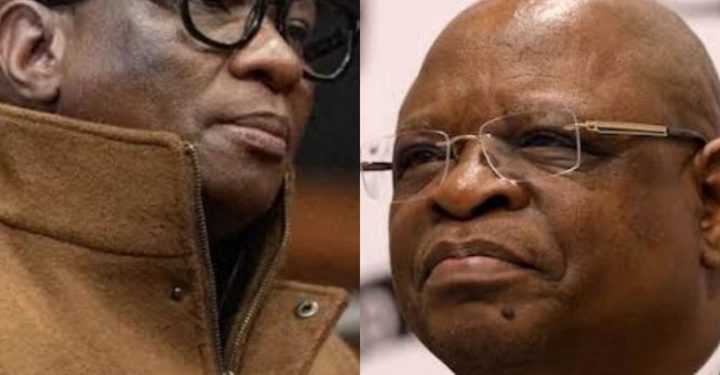Former Minister of State Security Zizi Kodwa has filed a defamation lawsuit against former Chief Justice Raymond Zondo in response to statements made during the State Capture Commission hearings.
Kodwa alleges that Zondo’s public remarks during the commission, which seemingly implicated him in corrupt activities, have caused significant harm to his reputation. Court documents filed in the Pretoria High Court reveal that Kodwa contends Zondo’s comments were made without sufficient evidence, resulting in damage to his personal and professional standing.
The lawsuit focuses on specific statements where Zondo allegedly suggested that Kodwa had knowledge of or was complicit in corruption during his tenure as a senior member of the African National Congress (ANC). Kodwa’s legal team is demanding a formal retraction, an apology, and compensation for the damage to his public image.
This legal dispute adds another layer of tension to the political and legal landscape shaped by the State Capture Commission, which investigated systemic corruption under former President Jacob Zuma’s administration. Although Zondo has yet to respond publicly to the lawsuit, his legal team is expected to argue that his comments fell within the scope of the commission’s mandate and were based on evidence gathered during its proceedings.
Political analysts see Kodwa’s legal action as emblematic of the broader factional battles within South African politics, particularly within the ANC. These tensions often pit those aligned with Zuma’s legacy against those advocating accountability and reform in the aftermath of state capture scandals.
Professor Thabo Mbeki, a political analyst, observed that the case could deepen existing divisions within the ANC. “This legal battle isn’t just about personal reputations; it symbolizes the ongoing ideological struggle over the narrative surrounding state capture,” Mbeki said.
As the case unfolds, it will likely draw significant public attention, potentially influencing perceptions of the State Capture Commission’s legacy and the broader accountability efforts tied to South Africa’s corruption scandals.






















